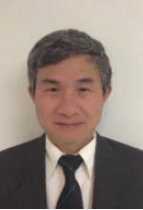Xuming Su1*
Zhejiang Provincial Engineering Center of lntegrated Manufacturing Technology and Intelligent Equipment Zhejiang University City College, Hangzhou, 310015, China
EXTENDED ABSTRACT: The mechanical properties of fiber reinforced polymer composites are highly direction-dependent as the initial fabric quality, material layout, preforming and molding processes all determine the final local orientation of the fiber. As the local fiber orientation significantly affects the properties and performance of a composite component, achieving the optimal component design requires tools that are capable of predicting both the microstructure and performance of the component. For compression molded carbon fiber composites, Molecular Dynamics models of epoxy resins were established to explore costitutive behavior and the interphase properties of fiber and matrix. A novel non-orthoganal material constitutive relation was developed and integrated into LS-Dyana to simulate preforming compression molding of continuous fiber reinforced prepregs, predicting changes of fiber orientation. Moldflow was calibrated for fiber orientation from compression molding of chopped fiber SMC. Multiscale RVE models were generated for both continuous and chopped fiber compression molded composites which link material micro and meso structures to macro mechanical properties. ICME-based models are connected into a multi-disciplinary optimization workflow that modifies geometry, part thickness, material selection, and composite layup for engineering performances. For injection molding process, MoldFlow was used to generate second order orientation tensor, and the invariant-based fitting closure approximation for the fourth order orientation tensor. Together with the unidirectional fiber reinforced material modulus from Mori-Tanaka model, the manufacturing information of injection molding was integrated into structural performance analysis using ABAQUS. The ICME tools have been used for a simultaneous optimization of component design and manufacturing of a multi-material vehicle subframe. Durability tests of the subframe confirmed the necessity and accuracy of the ICME tools.
Keywords: Integrated Computational Material Engineering; Fiber reinforced polymer composites

Dr. Su Xuming is currently the Director of Zhejiang Provincial Engineering Center of Integrated Manufacturing Technology and Intelligent Equipment, a distinguished Professor of Zhejiang University City College. He graduated from Purdue University. He was a technical leader at Ford Research Center and was principal investigator or major participants of more than 20 US government or Ford sponsored research projects. He has published more than 180 papers. In the field of integrated computational materials engineering, he was an early practitioner and has made some important original contributions. In the field of durability, he solved a number of long-standing and important technical problems in the automotive industry. His research interests include: ICME of cast aluminum alloy, fiber reinforced composites, additive manufacturing materials; residual stress analysis, thermomechanical fatigue, durability analysis of joints, etc.